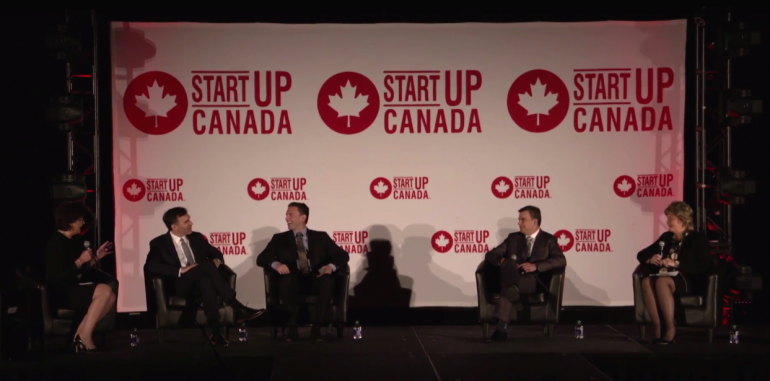As the federal government continues to examine next steps for Canada’s innovation strategy, the country’s entrepreneurs have been vocal about what exactly is needed to build the world’s next top companies at home.
Tony Lacavera, founder of Globalive, is one of these entrepreneurs who is often frank about what the community needs based on his own experience building WIND Mobile. Speaking at Startup Canada’s Day on The Hill, Lacavera, who now sits on Startup Canada’s board of directors, spoke to the thousands of policymakers and entrepreneurs about his vision for Canada’s innovation strategy.
“In our community, it’s important to remember that unicorns are the exception, rather than the rule. In many cases, ventures are shoestring operations held together with a tiny bit of capital and a big dream,” Lacavera said. “We need to create an entrepreneurship environment that produces more new ventures, and we must do more to ensure our startups stay in Canada.”
Lacavera touched on the need for a competitive tax policy, support for jobs in the technology sector rather than declining industries, and efficient infrastructure like broadband networks. “Our system of education of government must equip our young entrepreneurs with the core skills they need to be competitive. There are now a number of accelerator and incubator programs out there, but it’s no secret that Canada lags behind when it comes to STEM education.”
Lacavera had the chance to sit down with both the leaders that could make this vision possible and fellow entreprenurs with a similar experience. A panel with Lacavera and Minister of Finance Bill Morneau, Intuit Canada president Jeff Cates, and former Waterloo mayor and entrepreneur Brenda Halloran touched on specific objectives in Canada’s larger innovation strategy.
“We agree that one of the biggest challenges we face as a nation is dealing with our lagging productivity between us and other countries, so from our perspective, what we need to start with is students,” said Morneau. “We recognize students of today are innovators of tomorrow, so we started by reducing the costs of university for them by increasing student grants. But a second thing and a basis for our innovation agenda is by focusing on research in universities and colleges.”
Halloran said that it’s important for government to ensure the “right supports” are in place so that entrepreneurs feel secure in what they’re doing. “We need all partners at the table. Municipal governments are strapped for cash so any government funding that’s available, grants that are given to us so we can bolster up our economic departments, going on trade missions — it’s really really critical to be talking at the grassroots level with municipal government about what is needed in their communities.”


